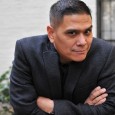It’s been a year of President Trump, and for those of us who are “other”—whether we identify as people of color, women, part of the LGBTQ community, immigrant or concerned with the environment—it’s been a rough one. Our concerns have been trampled on, our experiences dismissed, our rights rolled back. And the onslaught has been deliberate, intense and ongoing. The United States People Living with HIV Caucus (the HIV Caucus) recognizes the damage the harmful rhetoric, institutional neglect, and discrimination-based violence has inflicted this past year. This statement is an acknowledgement of what we have been through and where we can go.
While the United States has never been a truly safe place for many of us—whose differences are marked by color, sexuality, gender identity and expression, religion, socioeconomic class, disability, age—it has become more overtly hostile under the current administration. The death toll from hurricane Maria, still undetermined, and many acts violence on the basis of race and gender; President Trump praises white supremacists from his social media platform, dismisses sexual harassment allegations, and bans trans* and immigrants from our nation’s tapestry.
“History is constantly being revised to suit politics—people want to forget the pain they’ve experienced and the trauma our institutions have inflicted,” proclaims Andrew Spieldenner, Ph.D., California-based Chair of the HIV Caucus, “but ignoring a problem will not solve it. People living with HIV—in all of our identities, experiences and histories—are here, we are part of the US, and we deserve the same access to rights as anyone else. If we say we experience barriers—believe us. Don’t dismiss us or pretend we are not telling the truth because you don’t experience it.”
There are lessons we have learned, actions we can take and have taken. HIV activism has never accepted what we have been given or how we are legislated. In the past year, we have again protested publicly, loudly and consistently. From proposing immigration bans to sabotaging the Affordable Care Act, we continue to resist alongside our allies and against this administration and its hatred. We refuse to accept that our needs are not as important as the corporations billionaires run.
Barb Cardell, Colorado-based advocate and Vice Chair of the HIV Caucus, explains, “My commitment to street activism and protest was reignited, partly because this administration has been so horrific in denying rights of the LGBT community, people of color and people living with HIV (especially around healthcare). I hounded my state legislator on his complicity in trying to repeal the Affordable Care Act.”
Not everyone can protest safely. For many of us, the threats to our personal and professional safety require us to avoid engaging law enforcement and the legal system. But it’s important for us to find community: isolation can be dispiriting. Tiommi Luckett, Philly-based advocate and Secretary of the HIV Caucus, states, “Though demonstrations and rallies can be effective, as a black transwoman living with HIV, I would rather organize and mobilize people from behind the scenes because my identities meet at the intersection of being criminalized for exercising my first amendment privilege.”
We witnessed amazing election results last week. From New Jersey to Virginia and beyond, voters came and made sure that their voices were heard loud and clear. In Milford, PA, Sean Strub—founder of POZ magazine and one of the founders of the HIV Caucus—won a bid for mayor. “I’m so proud of Sean [Strub] and the work he is doing in the small town of Milford,” attests Tami Haught, Iowa-based HIV advocate and member of the HIV Caucus leadership team, “it’s vital that people living with HIV take part in the legislative process.”
AIDS Watch is the largest national legislative HIV day in the United States; in 2018, we are convening on March 25-27, 2018 in Washington, D.C. The HIV Caucus is the proud partner of AIDS United and Treatment Access Expansion Project, bringing together people living with HIV and our allies to meet with legislators and make our case about our needs, as well as coming together and connect with each other. Last year we saw a record number of participants. This coming year, we must come together in even larger numbers to proclaim “RESIST!” The only way to battle these onslaughts is through community.








Comments
Comments